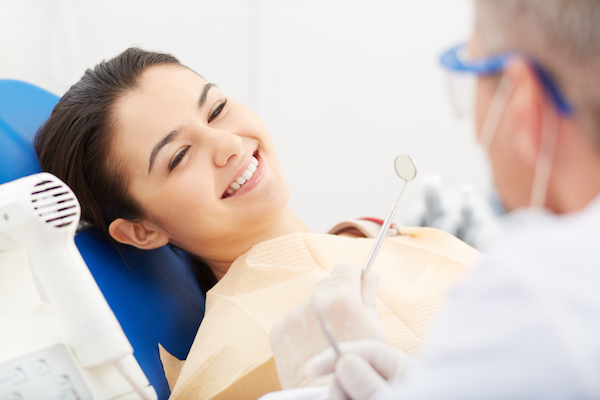Oral Hygiene
Maintain Optimum Oral Health Through Regular Oral Hygiene
Oral Hygiene Cabramatta
Oral hygiene keeps the mouth clean and is the best defence against cavities, gum disease, and other dental conditions.
It also aids in avoiding bad breath.
It’s essential to keep your mouth and teeth healthy. Cavities are less likely to form in healthy teeth.
Plaque buildup is little to nonexistent on clean, healthy teeth, and pink, firm gums indicate healthy gums.

Why Practice Good Oral Hygiene?

Dental problems, including tooth decay, gum disease, and even teeth erosion, can be avoided with good oral hygiene.
While brushing in the morning and at night is a terrific start, more dedication is required for effectiveness.
Here are some easy oral hygiene suggestions to help you maintain the health of your teeth.
Brushing
It’s crucial to clean your teeth at least twice daily, after breakfast and before retiring for the night. Spend at least 2 minutes brushing, ensuring clean all surfaces, including the biting surfaces and the inside and exterior.
- Brush the exterior, interior, and chewing surfaces of your teeth. The toothbrush should be placed against the gums at a 45-degree angle.
- Move the brush back and forth in small, circular strokes.
- Brush the insides of the front teeth gently up and down with the tip of your toothbrush.
- Brush your tongue afterwards to remove bacteria and refresh your breath.
Flossing
Brushing alone is ineffective at reaching microorganisms in the narrow places between your teeth and under your gum line. That is why it is critical to floss daily.
- Use a length of floss of about 18 inches and wrap it around the middle fingers of both hands. In between your thumb and index finger, firmly grasp the floss.
- Gently rub the floss between your teeth as you move it.
- Form the floss into a C shape against the tooth when it reaches the gum line. Move it slowly in that space between the gum and the teeth.
- Return the floss to the contact point. Then move it up or down the other side, following the form of the tooth.
- Rub the tooth’s side gently while using up-and-down motions to move the floss away from the gum.
- On the remaining teeth, use the same technique.
Interdental Cleaning
According to studies, utilising an interdental brush instead of dental floss is more effective.
Additional Dental Health Advice for Patients in Cabramatta
Consider using a fluoride-containing mouthwash in addition to regular brushing and flossing to help maintain good dental health.
Thanks to fluoride, your teeth become more durable and resistant to the damaging acids produced by oral germs.
Your chance of developing various oral disorders, such as gum disease and tooth loss, rises when you use tobacco products. Additionally, resist the urge to use toothpicks or other things that could harm your gums and encourage the growth of bacteria. Try to stop smoking if you do.
Your teeth are in great danger of chipping or shattering if you use them for tasks like cracking nuts, tearing open parcels, or even opening bottles. Never use your teeth for anything other than what they were designed for.
Visit your dentist in Cabramatta for a routine check-up as often as recommended, as well as any time you notice a problem like a toothache or bleeding gums.

Oral Hygiene Cabramatta
Nobody desires to have unsightly teeth. Although maintaining a healthy oral hygiene regimen may seem painful, trust us—it’s worth it!
At Cabramatta Dental Care, we take a gentle and meticulous approach to looking after our patients.
Visit your Cabramatta dentist today!
For oral hygiene in Cabramatta, call (02) 9755 5300 or book your appointment online.
We are located at 47 Arthur St in Cabramatta.
FREQUENTLY ASKED QUESTIONS
What are the most typical oral health issues, and how can you avoid them?
The most typical oral health issues are tooth decay and gum disease. Both can be avoided by brushing, flossing, and dental check-ups.
How frequently should a toothbrush be replaced?
Change your toothbrush every three months or soon if the bristles look old and frayed.
How often should I visit a dentist?
Most individuals benefit from going to the dentist once every six months, but those with particular conditions may need to go more frequently than that.
